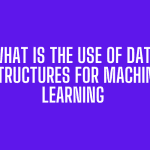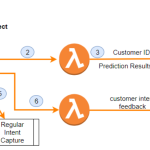Introduction Kubernetes, Docker, Mesos, and other cloud-native technologies are becoming increasingly popular among developers and IT teams. These technologies help you build containerized applications faster and easier than ever before. But what happens when a company wants to deploy its production environment with these technologies? According to a report by techgenix.com, … [Read more...] about Why Is Kubernetes Governance Critical to a Flourishing Cloud-Native Environment?
Technical
Learn all about technical data and programming and why it's crucial for businesses. Get knowledge on how to collect and use this information to improve your products and services.
What is the Use of Data Structures for Machine Learning
Introduction Data Structure is the way of organizing the data to retrieve it with minimum cost and utilization of resources. On the flip side, Machine Learning is a field of computer science that focuses on the use of data and algorithms to intimate the way of learning. Machine Learning overall consists of approaches and techniques which are entirely built on statistics, … [Read more...] about What is the Use of Data Structures for Machine Learning
What Is Intent Data & How to Leverage It
Digital transformation has changed the realm of marketing, this in turn got accentuated customers intricately and continuously searching for the solutions to their problems online in the post-COVID era. Most of the brands embraced a major shift in terms of how they communicated with their customers earlier and this involved brands getting more empathetic than ever before and … [Read more...] about What Is Intent Data & How to Leverage It
How Data Annotation is Important to Retail’s AI Adaptation
AI is expanding in every industry, especially in retail, where experts estimate that spending on AI will be $12 billion by 2023. They projected the retail industry to grow from 23.6 trillion U.S. dollars in 2018 to around 26.7 trillion U.S. dollars by 2022. The enormous growth has led to major competition in the industry. To sustain the competition retailers, need to gear up … [Read more...] about How Data Annotation is Important to Retail’s AI Adaptation
Evaluating PagerDuty Alternatives for Incident Alert Management
We live in an era of instant gratification - customers are accustomed to same-day delivery, 24/7/365 days tech support and uninterrupted browsing experience. Rapid innovation powered by digitization has left customers expecting better experiences and faster service delivery. And organizations are left with no choice but to adapt their business to the new reality if they want to … [Read more...] about Evaluating PagerDuty Alternatives for Incident Alert Management
What is technical data?
Technical data can be something as simple as a list of ingredients for a recipe or a more complex set of instructions for assembling a piece of furniture. Technical data can also be mathematical formulas or set points for calibration. No matter what form it takes, technical data is always designed to provide information that will help people to understand and use a particular product or service.
In some cases, technical data may be subject to special regulations, such as those governing the handling of confidential personal information. However, in general, technical data is considered to be publicly available information. Want to learn more about technical data? Datafloq has courses available. Contact us to get started.
What is the purpose of technical data?
Technical data is often used to create engineering drawings or specifications, which are then used to manufacture the product. Technical data can also be used to troubleshoot problems with a product or system.
For example, if a component is not working properly, technicians may refer to the technical data to determine the root cause of the problem. Technical data is an essential part of the product development process and can be very useful for businesses and consumers.
What are examples of technical data?
Technical data refers to the specifications of a product or system, including its performance, dimensions, weight, etc. It is often used in the context of engineering or manufacturing. For example, engineers will consider the vehicle’s weight, aerodynamics, and engine size when designing a new car.
Technical data can also be used to compare different products or systems. For example, if you are trying to decide between two different types of printers, you might look at their printing speed, paper capacity, and resolution.
What is technical data analysis?
Technical data analysis aims to help make better decisions by understanding the data better. Technical data analysis can be used for different purposes, such as predicting future events, identifying trends, or spotting outliers. Many different statistical methods can be used for technical data analysis, and the choice of method will depend on the type of data and the question you are trying to answer.
What is a high-tech startup?
A high-tech startup is a company that uses technology to create new products or services. These startups are usually founded by entrepreneurs with innovative ideas for a new business. Many high-tech startups are based around developing new software or hardware, but some may also focus on creating new medical devices or developing new clean energy technologies.
Whatever their focus, all high-tech startups share a common goal: to bring their innovative ideas to market and create value for their customers.
What is a high-tech business?
A high-tech business is an organization that develops or uses advanced technological processes and products in its operations. Many high-tech businesses are involved in research, development, engineering, and manufacturing. They often work with cutting-edge technologies, such as artificial intelligence, biotechnology, and nanotechnology.
These businesses typically require a highly skilled workforce and substantial investment in research and development. Due to the risky nature of developing new technologies, many high-tech businesses are venture-backed startups. However, some large companies, such as Google and Apple, are also considered high-tech businesses.







